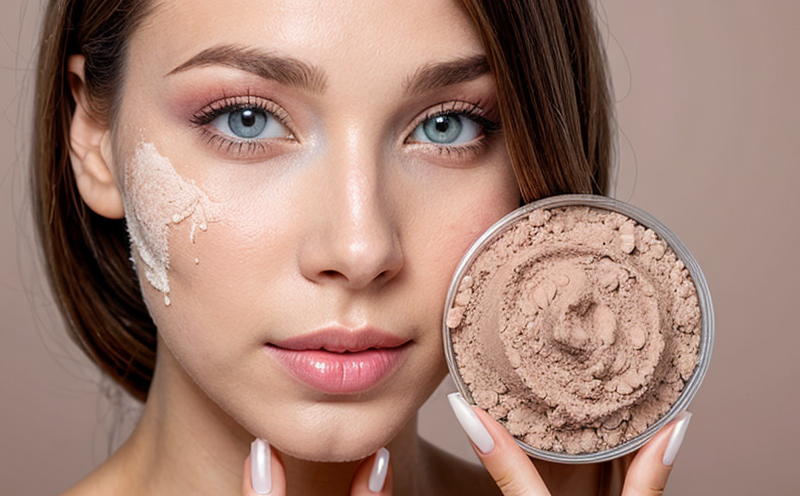Paraben Sensitization Testing in Cosmetics
The use of parabens as preservatives is a widely recognized practice across the cosmetics industry. However, their widespread application has led to concerns regarding potential allergic reactions and sensitization effects. Paraben sensitization testing is crucial for ensuring that cosmetic products are safe from an allergenic perspective.
Parabens such as methylparaben, ethylparaben, propylparaben, and butylparaben are known for their antimicrobial properties. Despite these benefits, they can also act as haptens, which may lead to allergic contact dermatitis (ACD) in individuals who have developed sensitization towards them. This is particularly relevant given the increasing demand for hypoallergenic products.
According to international standards like ISO 16429-1 and ASTM E3085, paraben sensitization testing involves several steps including patch testing on subjects suspected of having previous exposure to these compounds. The test aims at identifying whether there is a specific IgE-mediated or delayed-type hypersensitivity reaction.
The process typically begins with selecting appropriate individuals based on their medical history and potential exposure to parabens. During the initial phase, baseline measurements are taken to establish normal skin reactivity levels. Subsequently, patches containing different concentrations of parabens are applied to these areas for a prescribed period. The severity of any resulting dermatitis is then scored according to standardized scales.
This testing method provides valuable insights into the potential allergenic risk associated with specific cosmetic formulations. By identifying sensitized individuals early on during product development, manufacturers can take corrective measures such as reformulating products or incorporating alternative preservative systems that do not pose similar risks.
Paraben sensitization testing is particularly important for companies operating globally since regulatory requirements vary across different regions. For instance, EU regulations mandate rigorous safety assessments prior to market release, while other markets may have less stringent guidelines but still emphasize consumer health and welfare.
| Region | Regulatory Requirements | Safety Considerations |
|---|---|---|
| EU | Rigorous safety assessments, including patch testing | Consumer health and welfare |
| USA | General safety standards with some voluntary guidelines | Consumer health and welfare |
| Japan | Vigorous scrutiny focusing on long-term effects | Consumer health and welfare |
In summary, paraben sensitization testing plays a vital role in ensuring the safety of cosmetic products by mitigating allergenic risks. It serves as an essential tool for manufacturers committed to producing high-quality, safe cosmetics that meet global regulatory standards.
Eurolab Advantages
At Eurolab, we pride ourselves on offering comprehensive and reliable paraben sensitization testing services tailored specifically for the cosmetic industry. Our dedicated team of experts brings extensive experience in handling complex allergen-related challenges, ensuring accurate and reproducible results.
- State-of-the-Art Facilities: Equipped with advanced laboratory equipment that meets international standards.
- Patient-Centric Approach: Tailoring testing protocols to individual needs while maintaining high ethical standards.
- Comprehensive Reporting: Providing detailed reports that include all relevant test parameters and interpretations.
We understand the importance of timely delivery and strive to meet deadlines without compromising on quality. Additionally, our commitment to continuous improvement ensures that we stay at the forefront of industry practices and adhere strictly to evolving regulatory requirements.
Why Choose This Test
- Promotes Consumer Safety: Ensures that products do not cause unwanted allergic reactions, enhancing trust among consumers.
- Avoids Legal Issues: Helps companies avoid potential lawsuits and fines associated with unsafe products.
- Gains Competitive Edge: Demonstrates a proactive approach towards product safety, potentially boosting brand image.
- Incorporates Best Practices: Adheres to international standards ensuring consistency across different markets.
By incorporating paraben sensitization testing into your quality assurance program, you not only comply with regulatory demands but also contribute positively towards public health and safety.
Use Cases and Application Examples
- New Product Development: Ensures new formulations are safe before commercial release.
- Ingredient Review: Allows for the evaluation of existing ingredients to determine their suitability.
- Formulation Changes: Helps identify any adverse reactions following modifications in product composition.





